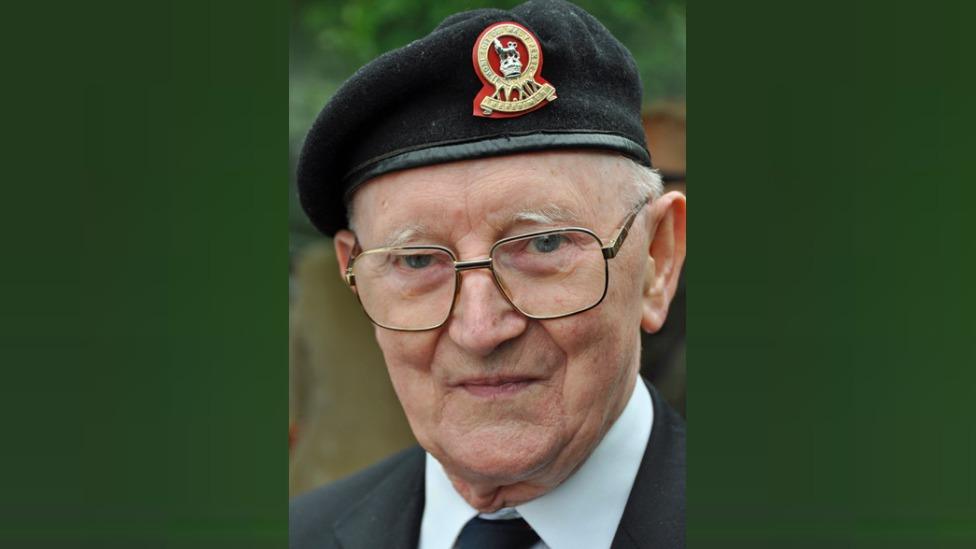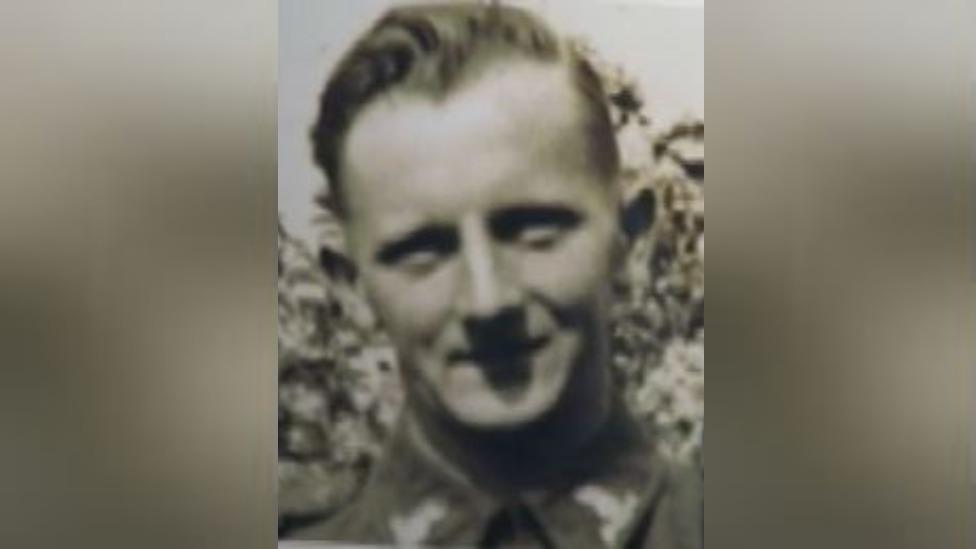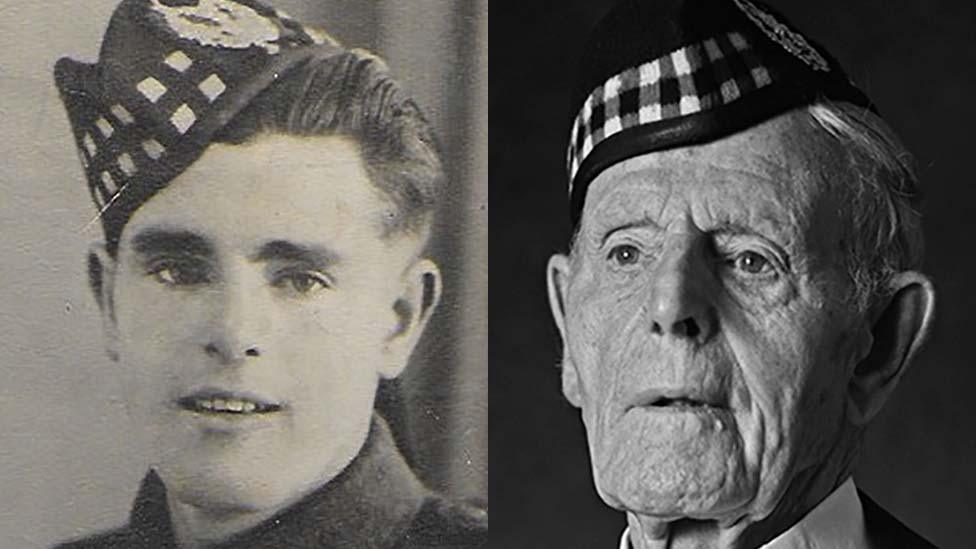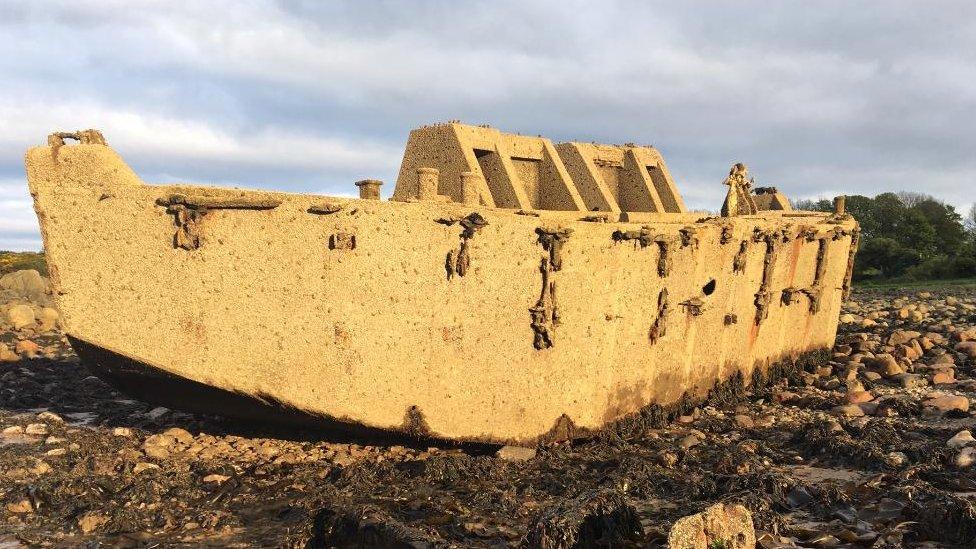Tributes paid to Alex Marshall, one of Scotland's last D-Day veterans
- Published

Alex Marshall joined the Royal Armoured Corps when he was 18
One of Scotland's last surviving veterans of the D-Day landings has died at the age of 96.
Alex Marshall was badly wounded in an infamous tank battle after the Allied invasion of Nazi-held France.
He later returned to the frontline and was injured a second time in the Netherlands, near the German border.
Mr Marshall's wartime experiences haunted him for years and drove him to help fellow veterans and commemorate comrades who did not return home.
As a longstanding chairman of the Fife, Lothian and Borders branch of the Normandy Veterans Association, he helped organise their trips back to France on major anniversaries of D-Day and the Battle of Normandy.
'Ruined me'
Born in Glasgow, Mr Marshall was called up in 1942 at the age of 18 and joined the Royal Armoured Corps.
He was a gunner in a Cromwell tank on D-Day, 6 June 1944, and landed on Gold Beach in Normandy with the 4th County of London Yeomanry.
Mr Marshall later recalled: "Going over we were plagued with the most horrible seasickness.
"It was so bad we didn't care whether we lived or died.
"When we landed, there were bodies and parts of bodies strewn all over the place. We had to drive over them.
"It took me years to shake off the possibility that we ran over some of our own wounded men. That was something that ruined me for years and years afterwards."
A week after D-Day, he was injured when a column of British tanks was caught in a surprise attack by five German Tiger tanks outside the village of Villers-Bocage.

Mr Marshall was a gunner in a Cromwell tank on 6 June, 1944
Speaking in 2014, Mr Marshall said: "When we entered the village people were on the streets cheering.
"The Germans had left. We moved on to higher ground and everything seemed quiet for a spell, then all hell broke loose.
"The Tigers came swarming in. They destroyed 30 armoured vehicles in 29 minutes. It was just a complete shambles."
His Cromwell tank was hit and caught fire. The driver and gunner were killed instantly.
Mr Marshall said: "The radio operator and commander were badly stunned and unable to get themselves out. I still don't know how I managed it but I got them out.
"Then we received a second hit. I staggered and fell off the tank with my hair on fire. What happened after that is very hazy, but I was told that a French farmer brought me in to the field hospital in his cart, at great risk to himself. I've never forgotten his gesture."
'Calm diplomacy'
After recovering from his wounds, he re-joined his original unit as the Allies fought their way through France, Belgium and the Netherlands, where he "came to grief once again".
"That was the end of my army career," he said.
Mr Marshall trained as a joiner after the war, lived in Edinburgh and retired as a director of a glazing company. He made countless trips back to Normandy with other veterans until his early 90s.
His son Bill said: "I remember being very surprised when he joined the Normandy Veterans Association. Like many of the veterans he didn't talk about the war. It was like a closed door that he didn't want to open. He only told me about pulling the officer out of the burning tank 15 years ago.
"I think he felt that he had got into a position where he could do a lot of good for people.
"Some of the veterans and their families and had fallen on hard times and he did a lot to get them what help was available. He used calm diplomacy and never wanted any thanks for it."
- Published1 June 2019

- Published30 May 2019
